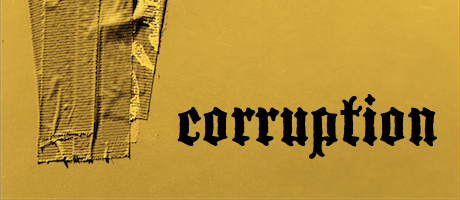Soiled Souls
 Image by Pulpolux
Image by Pulpolux
If God hadn’t promised never to flood the earth again, would He see that the wickedness of man is great in the earth and that our intentions and thoughts and are conduct are evil and destroy us today? Are we really less corrupt than those in Noah’s day, or are we as bad as, or maybe even worse than, the sinners in Genesis six?
There’s no doubt about it: the weight of wickedness in Genesis 6:1-8 is crushing. First of all, the corruption was so bad that God flooded the earth and destroyed the entire population, save one family. That’s a fact. Their extreme evil warranted extreme judgment.
Second, the depth of depravity is divinely described as “every intention was only evil continually.” Their evil was exhaustive (each and every thought), exclusive (without exception), and extensive (all day, every day).
Third, there was demonic influence, and offspring, among men. Driven by sensual lust, the “sons of God” had offspring with the “daughters of man.”
Fourth, men had hundreds of years to “perfect” their sin, to invent new ways to be wicked, to hone their corruption. Even though Moses didn’t list the years of Cain’s descendants–he only does so for Seth’s line in chapter five–the average lifespan was long enough to make 120 years a significant punishment by limitation (v.3). It’s hard to imagine how soiled a soul would be after 200, 500, or 800 years.
Fifth, though not all, many of those in Genesis six lived lives that overlapped with Adam himself. They could have seen and talked to Adam about the exquisite garden, and about the deceiving serpent. They could have heard firsthand experience about how much better fellowship with God was compared to forbidden fruit, from someone who lost more blessing than anyone due to his disobedience. Yet other than Noah, men rejected in-person revelation, the likes of which have never been since.
It’s no wonder the LORD was sorry that He had made man on the earth, and it grieved Him to His heart.
The question is, then, how do we compare? How heavy is the weight of our wickedness?
First, who says that “every intention of the thoughts of (man’s) heart (are not still) only evil continually”? Scripture doesn’t ever reverse or repeal the Genesis 6 statement after the flood. In fact, none is righteous, no not one. No one seeks God. All have turned aside. Men are slaves of sin, tyrannized under it’s corrupting power. Men walk in sin, follow the course of this world, follow the serpent, and live in the passions of the flesh and are children of wrath by nature. This is not better.
Second, demonic assault is no less a threat today. We may not talk about it as much or see demonic offspring walking among us, but Satan’s schemes are no less effective and destructive. We wrestle not against flesh and blood but against cosmic powers over this present darkness against spiritual forces in the heavenly places. The devil prowls no less today like a lion, seeking prey to devour. That’s not better.
Third, men may have had hundreds of years to fine tune their sin, but we have hundreds of cable TV channels to tune into other people’s wicked ideas, thousands of movies to rent and songs to download, and millions of websites with the ugliest, most God-dishonoring trash in the universe. We need not apply creative energy toward corruption, we can adopt from (and pay) those innovators before us. We can soil our souls in an unimaginable number of ways that those in Noah’s days couldn’t have dreamed of. That’s not better.
Fourth, we may not have met Adam, but we reject the inspired Book that includes Adam’s story. In fact, unlike those in Genesis 6, we reject a complete canon of God’s special revelation. More than that, we live after God’s incarnate revelation of Himself, God the Son, God in flesh, God among us. His life and work are recorded for us, yet we reject the living and written Word. That’s not better.
Finally, though the sin in Genesis was so bad that God destroyed the earth’s population in one swell flood, our sin is so bad, so offensive, so wretched, so God-dishonoring, that [God wounded His only Son for our transgressions. He crushed Christ for our iniquities. He laid on Jesus the iniquity of all us who believe]isa53. One death was far more brutal, more painful, and more severe than all the combined deaths in the flood. That’s not better.
Maybe a comparison between pre-flood depravity and modern day depravity isn’t quite apples to apples, but we can say for certain that things were bad then, and things are bad now. There is no place for smug self-righteousness on our part. For whatever else Genesis 6:1-8 works in our souls, it should convict us, humble us, and cause us to seek God’s mercy for our own rebellion. We would be wrong to see the pre-flood wickedness and not consider our own corruption. We would be wrong to see God’s sorrow over, and seriousness about sin and not grieve over, repent from, and seek forgiveness in Christ for our own soiled souls.